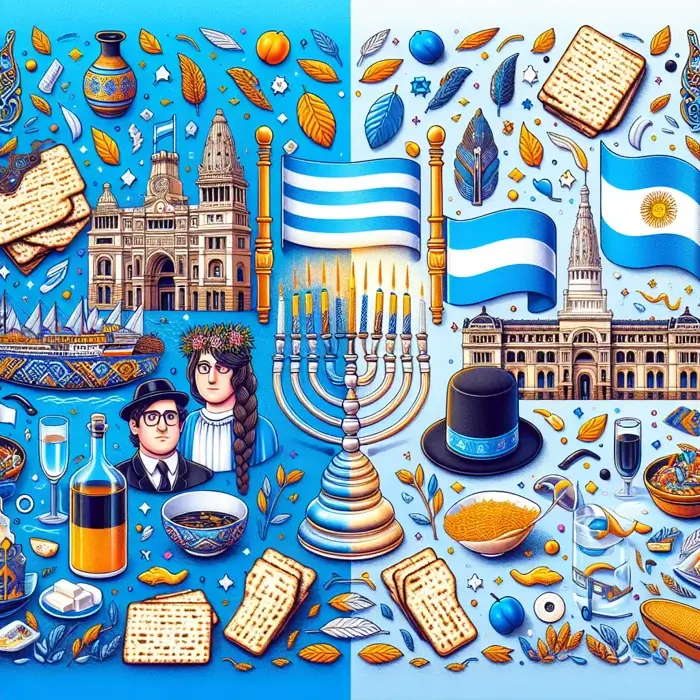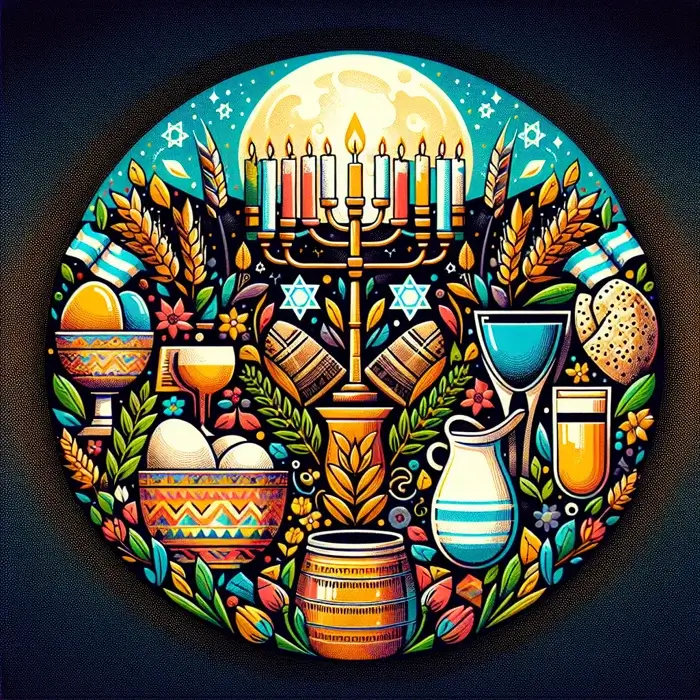Passover Eve in Argentina
Use our holiday API to get the exact date of Passover Eve in Argentina in every year.
Passover Eve in Argentina: A Tale to Tell

In the Jewish calendar, Passover Eve, "Erev Pesach" in Hebrew, marks a significant day of preparation for the Passover festival (Pesach). In Argentina, Passover Eve is acknowledged due to the large presence of Jews, among whom one of the world's largest groups outside of Israel. The article will investigate the meaning, history, and customs behind Passover Eve in Argentina, elaborating on the way of life during this holiday, how it is celebrated, and its effects on life during such a time.
The Meaning and Importance of Passover Eve
Passover Eve serves as the preface to the Passover festival, which celebrates the journey of the Israelites out of slavery in Egypt as narrated in the biblical book of Exodus. This particular day is filled with religious and cultural significance: the preparations for the Seder, the ritual meal that marks the beginning of Passover. For many Jewish families, Passover Eve is a day of cooking, cleaning, and spiritual introspection.
When Passover Eve Is Observed
Passover Eve falls on the 14th day of the Hebrew month of Nisan and might take place anytime in March or April, depending on the lunar calendar. For the sake of this post, we shall consider April 12, 2025, as the last Passover Eve. The date alternates yearly according to the Hebrew calendar, which is lunar-based, as opposed to the Gregorian calendar.
Local Traditions and Activities on Passover Eve

To Seder Preparations
In Argentina, as in other Jewish communities worldwide, families undertake a thorough cleaning process known as "spring cleaning" on Passover Eve. This involves removing chametz, or leavened bread, from homes to symbolize the purification of pride and spiritual leavening.
The Seder Meal
The actual Seder is after sunset, but most of Passover Eve is devoted to putting the traditional foods of matzah, maror (bitter herbs), and charoset (a sweet paste) onto the table for the Seder.
Community and Religious Gatherings
Special services and gatherings are held in synagogues and Jewish community centers in various cities throughout Argentina, including Buenos Aires, Córdoba, and Rosario. These events usually involve prayer, discussion about the holiday, and a seder for singles and others who might not have family for Passover.
Public Life and Observances
Since it is not observed as an official holiday, government offices, banks, schools, and businesses carry on with normal day activities. Many Jewish-owned businesses, however, close early in the day to give their owners time to prepare for the holiday. Schools organizing their calendar during Passover often take into account which students and families observe the holiday.
The History of Passover Eve in Argentina

Passover Eve in Argentina has cup history as far as its date in the history-attributed events of the late 19th and early 20th centuries. During these periods, Eastern and Oriental Jews immigrants poured into the land. They carried their religious practices with them and set up synagogues and cultural centers, which became the vital pulse of Jewish life in Argentina.
Passover Eve Recognition in Argentina
Passover Eve, although has not been recognised as a public holiday by Argentina itself, is simply symbolic of the diversity that exists within the country's rich cultures and the fact that Jewish traditions bless Argentine society with kosher restaurants, Jewish cultural events, and much active participation in Argentine arts, politics, and business.
Conclusion
Passover Eve in Argentina is an introspective, preparatory, and anticipatory day in the life of the Jewish family, readying itself for the Passover festival. While not a holiday in itself, it does convert significant portions of the population and will thus seamlessly weave into the overall fabric of things in Argentina. For the most eager to experience or understand the traditions of the Jewish community in Argentina, experiencing Passover Eve certainly offers a meaningful glimpse into the very pulsating heritage and spiritual practices of the community itself.